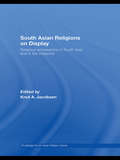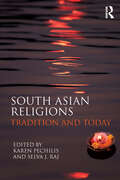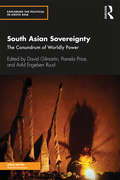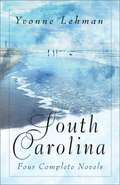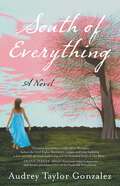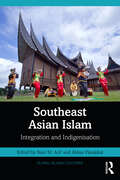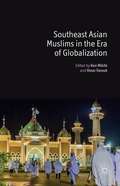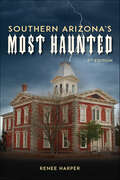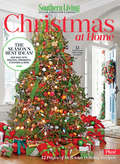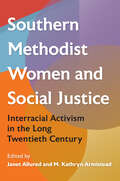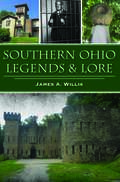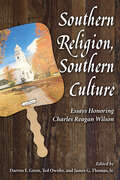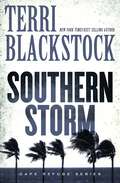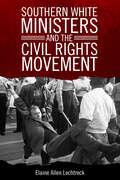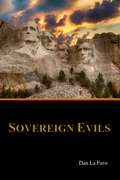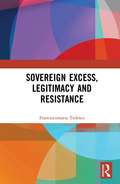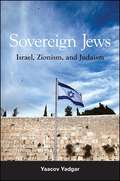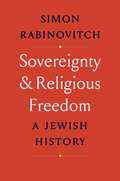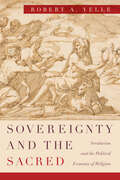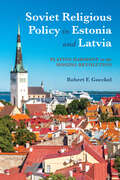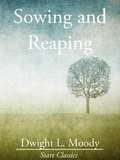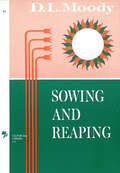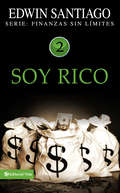- Table View
- List View
South Asian Religions on Display: Religious Processions in South Asia and in the Diaspora (Routledge South Asian Religion Series)
by Knut A. JacobsenReligious procession is a significant dimension of religion in South Asia. Processions are central not only in Hinduism, but also Islam, Christianity, Jainism and Sikhism, which have large procession rituals. The last years have seen an increase in processions and ritualizations of space both in South Asia and in the South Asian Diaspora. Processions are religious display events and the increase in processions are functions of religious pluralism and competition about public space as well as economic prosperity and a revival of religious identities. Processions often bring together religion and politics since they are about public space, domination and contestation. Written by leading specialists on religious processions and ritualization of public space in South Asia and in the Diaspora, this volume presents current research on the interpretations of the role of processions, the recent increase in processions and changes in the procession traditions. South Asian Religions on Display will appeal to students and scholars of Asian studies, anthropology, religion and political science.
South Asian Religions: Tradition and Today
by Karen Pechilis Selva J. RajThe religious landscape of South Asia is complex and fascinating. While existing literature tends to focus on the majority religions of Hinduism and Buddhism, much less attention is given to Jainism, Sikhism, Islam or Christianity. While not nelecting the majority traditions, this valuable resource also explores the important role which the minority traditions play in the religious life of the subcontinent, covering popular as well as elite expressions of religious faith. By examining the realities of religious life, and the ways in which the traditions are practised on the ground, this book provides an illuminating introduction to religion in South Asia.
South Asian Sovereignty: The Conundrum of Worldly Power (Exploring the Political in South Asia)
by David Gilmartin Pamela Price Arild Engelsen RuudThis book brings ethnographies of everyday power and ritual into dialogue with intellectual studies of theology and political theory. It underscores the importance of academic collaboration between scholars of religion, anthropology, and history in uncovering the structures of thinking and action that make politics work. The volume weaves important discussions around sovereignty in modern South Asian history with debates elsewhere on the world map. South Asia’s colonial history – especially India’s twentieth-century emergence as the world’s largest democracy – has made the subcontinent a critical arena for thinking about how transformations and continuities in conceptions of sovereignty provide a vital frame for tracking shifts in political order. The chapters deal with themes such as sovereignty, kingship, democracy, governance, reason, people, nation, colonialism, rule of law, courts, autonomy, and authority, especially within the context of India, Bangladesh, and Pakistan. The book will be of great interest to scholars and researchers in politics, ideology, religion, sociology, history, and political culture, as well as the informed reader interested in South Asian studies.
South Carolina
by Yvonne LehmanThe female instinct to protect and provide for her family is strong. But can these four Southern women stand up to the challenges that rage against their loved ones? As a young woman, Sharon saw her life forever changed one tempestuous night, but After the Storm, she rebuilt and raised a loving family. When a new tragedy strikes, can Sharon reveal her hidden secrets to save her grandson's life? Adella married the Catch of a Lifetime for his money but now feels trapped in her own net. The decision she is about to make will forever affect her sisters, her daughter, and her husband. Brooke has lost the love of her youth and now must raise a young son alone. She is plagued by distrust as she tries to start over, but Somewhere a Rainbow must await her. Norah will do anything to see that her orphaned niece is raised in a loving environment. But when she meets the baby's uncle - a true Southern Gentleman - they disagree on everything. Can there be compromise for the child's sake? The ultimate family man is God - but will each of these women turn to Him for counsel? Can they comprehend His lessons on true love?
South of Everything: A Novel
by Audrey Taylor GonzalezForeWord Reviews&’ IndieFab Book of the Year &“Editor&’s Choice Award&” Independent Publisher Awards Bronze &“Best Regional Fiction South&” Winner of International Book Awards in &“Religious Fiction&” Category Set in 1940s Germantown, Tennessee, South of Everything is a magical coming of age story about the daughter of a plantation-owning family, who, despite her privileged background, finds more in common with &“the help&” than her own family. She develops a special kinship with her parents&’ servant Old Thomas, who introduces her to the mysterious Lolololo Tree––a magical, mystical tree with healing powers that she discovers is wiser than any teacher or parent or priest. Her connection with the Lolololo Tree opens her eyes to the religious and racial prejudice of her surroundings and readers will root for her to fight against injustice and follow her heart to meet her fate.
Southeast Asian Islam: Integration and Indigenisation (Global Islamic Cultures)
by Abbas Panakkal Nasr M. ArifThis book explores Muslim communities in Southeast Asia and the integration of Islamic culture with the diverse ethnic cultures of the region, offering a look at the practice of cultural and religious coexistence in various realms.The volume traces the origins and processes of adoption, transmission, and adaptation of Islam by diverse ethnic communities such as the Malay, Acehnese, Javanese, Sundanese, the Bugis, Batak, Betawi, and Madurese communities, among others. It examines the integration of Islam within local politics, cultural networks, law, rituals, education, art, and architecture, which engendered unique regional Muslim identities.Additionally, the book illuminates distinctive examples of cultural pluralism, cosmopolitanism, and syncretism that persisted in Islamic religious practices in the region owing to its maritime economy and reputation as a marketplace for goods, languages, cultures, and ideas.As part of the Global Islamic Cultures series that investigates integrated and indigenized Islam, this book will be of interest to students and researchers of theology and religion, Islamic studies, religious history, political Islam, cultural studies, and Southeast Asian studies. It also offers an engaging read for general audiences interested in world religions and cultures.
Southeast Asian Muslims in the Era of Globalization
by Ken Miichi Omar FaroukThis volume investigates the appropriate position of Islam and opposing perceptions of Muslims in Southeast Asia. The contributors examine how Southeast Asian Muslims respond to globalization in their particular regional, national and local settings, and suggest global solutions for key local issues.
Southern Arizona's Most Haunted
by Renee HarperThis new edition explores 47 stories (three new ones) involving the folklore, history, and paranormal activity surrounding the apparitions that haunt these eerie cities. Learn about • Bisbee&’s Lady in White, the ghost who saved the lives of three children; • Tombstone&’s Swamper, who hid his silver and is bound to keep others from finding it; and • the ghost of a woman who smells like roses in Tucson&’s Hotel Congress. Also discover how you can become a paranormal investigator with your own ghost hunt, including all the equipment needed and how to use it. There is nothing more spine tingling than being in a haunted location, with the lights off, and not knowing what will happen . . . maybe you should tour southern Arizona&’s haunted cities for the scare.
Southern Belle's Special Gift (Keystone Stables)
by Marsha HublerBook three in the Keystone Stables fiction series—girls ages 10 and up Skye and Morgan have their hands full trying to share God’s love and the preciousness of life with Tanya Bell, an African-American girl and a runaway who becomes a foster child in the Chambers’ household. Tanya is a veteran shoplifter. But when one of the mares dies giving birth to a foal, Tanya is transformed as she takes responsibility for the foal.
Southern Living Christmas at Home: 250 Recipes & Ideas For A Southern Holiday
by The Editors of Southern LivingSouthern Living Magazine presents Christmas at Home for Southern Living Christmas at Home.
Southern Methodist Women and Social Justice: Interracial Activism in the Long Twentieth Century (Southern Dissent)
by M. Kathryn Armistead Janet AlluredHighlighting the contributions of Methodist women in advocating for progressive reform from 1900 to the present This book tells the stories of nine southern Methodist women, who, inspired by their faith, carried forward the spirit of progressivism. They fought for racial equality, challenged white male supremacy, and addressed class oppression. The white and Black women featured here responded to local human rights violations with compassion, advocating for expanded and more diverse private and public services in the United States. Motivated by a modernist interpretation of the Gospel authorized by the tenets of Methodism, these women expanded notions of southern identity and womanhood. Their actions supported the Black freedom struggle and promoted women’s rights, gaining momentum after the 1939 rise of the Women’s Society of Christian Service—the largest Protestant women’s organization in the country. Grounded in research from church archives and interviews, this book shows how Methodist traditions provided spiritual, theological, and doctrinal support for social justice work among laywomen and female clergy. With Methodism as a case in point, this book expands the historical narrative of twentieth-century reform movements to include the South’s progressive religious traditions. Contributors: Chelsea Elizabeth Hodge | Fran Wescott | Janet Lynn Allured | Randall M. Miller | Jeanette Stokes | M. Kathryn Armistead | Stanley Harrold | Rachel Sauls | Helen R. Neinast | Jennifer Copeland | Katie W. Powell A volume in the series Southern Dissent, edited by Stanley Harrold and Randall M. Miller
Southern Ohio Legends & Lore (American Legends)
by James A. WillisScary, mysterious & just plain weird stories from Southern Ohio The southern portion of the Buckeye State has long attracted its fair share of colorful characters and odd occurrences. Infamous bootlegger George Remus rose to power shortly after moving to Cincinnati. Roy Rogers, King of the Cowboys, was born and raised in southern Ohio. Some even say creatures not of this planet are drawn to the area, which has had numerous UFO sightings. In the same region, an unassuming university professor got away with murder, an eccentric built his version of a European castle using nearby river rocks, and a headless motorcycle ghost roams a rural roadway. Ride along with author James A. Willis as he ventures into Southern Ohio in search of all things strange and spooky.
Southern Religion, Southern Culture: Essays Honoring Charles Reagan Wilson (Chancellor Porter L. Fortune Symposium in Southern History Series)
by Darren E. Grem, Ted Ownby, and James G. ThomasContributions by Ryan L. Fletcher, Darren E. Grem, Paul Harvey, Alicia Jackson, Ted Ownby, Otis W. Pickett, Arthur Remillard, Chad Seales, and Randall J. StephensOver more than three decades of teaching at the University of Mississippi, Charles Reagan Wilson’s research and writing transformed southern studies in key ways. This volume pays tribute to and extends Wilson’s seminal work on southern religion and culture. Using certain episodes and moments in southern religious history, the essays examine the place and power of religion in southern communities and society. It emulates Wilson’s model, featuring both majority and minority voices from archives and applying a variety of methods to explain the South’s religious diversity and how religion mattered in many arenas of private and public life, often with life-or-death stakes.The volume first concentrates on churches and ministers, and then considers religious and cultural constructions outside formal religious bodies and institutions. It examines the faiths expressed via the region’s fields, streets, homes, public squares, recreational venues, roadsides, and stages. In doing so, this book shows that Wilson’s groundbreaking work on religion is an essential part of southern studies and crucial for fostering deeper understanding of the South’s complicated history and culture.
Southern Storm (Cape Refuge Series #2)
by Terri BlackstockSequel to the #1 best-selling Cape Refuge First a dead stranger. Now a missing Police Chief. Did Chief Cade run off to elope . . . or has he met with foul play? The body in the morgue had no ID. No one knew who he was or where he came from when he walked out in front of Cade’s car. And when Cade learns he had a gunshot wound before he was struck, finding his identity becomes even more urgent. Then Cade vanishes. Authorities discover the victim’s name, and the woman Cade was last seen with turns out to have been the dead man’s wife. Speculation abounds about Cade’s relationship to the woman and his part in the victim’s death. His disappearance makes him look even more suspicious. But Blair Owens doesn’t believe the rumors. Something has happened to Cade, and she’s determined to find him. Saving Cade’s life will take faith in a God whom Blair has always doubted—but he may be her only hope.
Southern White Ministers and the Civil Rights Movement
by Elaine Allen LechtreckIn 1963, the Sunday after four black girls were killed by a bomb in a Birmingham church, George William Floyd, a Church of Christ minister, preached a sermon based on the Golden Rule. He pronounced that Jesus Christ was asking Christians to view the bombing from the perspective of their black neighbors and asserted, "We don't realize it yet, but because Martin Luther King Jr. is preaching nonviolence, which is Jesus's way, someday Martin Luther King Jr. will be seen as the best friend the white man in the South has ever had." During the sermon, members of the congregation yelled, "You devil, you!" and, immediately, Floyd was dismissed. Although not every anti-segregation white minister was as outspoken as Pastor Floyd, many signed petitions, organized interracial groups, or preached gently from a gospel of love and justice. Those who spoke and acted outright on behalf of the civil rights movement were harassed, beaten, and even jailed.Based on interviews and personal memoirs, Southern White Ministers and the Civil Rights Movement traces the efforts of these clergymen who--deeply moved by the struggle of African Americans--looked for ways to reconcile the history of discrimination and slavery with Christian principles and to help their black neighbors. While many understand the role political leaders on national stages played in challenging the status quo of the South, this book reveals the significant contribution of these ministers in breaking down segregation through preaching a message of love.
Sovereign Evils
by Dan La FaveBattle-scarred Marine-turned-lawyer Rod Strong suddenly finds himself entangled in unearthing a clandestine drug operation—an undertaking that leads him to discover and then strive to fulfill a prophecy revealed by legendary Chief Red Cloud on his deathbed. Woven in the rich history of the Black Hills, Sovereign Evils presents a legal suspense story that combines a Grisham novel with a Krakaue non-fiction odyssey.
Sovereign Excess, Legitimacy and Resistance
by Francescomaria TedescoWhen talking about his film Salò, Pasolini claimed that nothing is more anarchic than power, because power does whatever it wants, and what power wants is totally arbitrary. And yet, upon examining the murderous capital of modern sovereignty, the fragility emerges of a power whose existence depends on its victims’ recognition. Like a prayer from God, the command implores to be loved, also by those whom it puts to death. Benefitting from this "political theurgy" as the book calls it (the idea that a power, like God, claiming to be full of glory, constantly needs to be glorified) is Barnardine, the Bohemian murderer in Shakespeare’s Measure for Measure, as he, called upon by power to the gallows, answers with a curse: ‘a pox o’ your throats’. He does not want to die, nor, indeed, will he. And so, he becomes sovereign. On a level with and against the State.
Sovereign Jews: Israel, Zionism, and Judaism
by Yaacov YadgarThe question of Jewish sovereignty shapes Jewish identity in Israel, the status of non-Jews, and relations between Israeli and Diaspora Jews, yet its consequences remain enigmatic. In Sovereign Jews, Yaacov Yadgar highlights the shortcomings of mainstream discourse and offers a novel explanation of Zionist ideology and the Israeli polity. Yadgar argues that secularism's presumed binary pitting religion against politics is illusory. He shows that the key to understanding this alleged dichotomy is Israel's interest in maintaining its sovereignty as the nation-state of Jews. This creates a need to mark a majority of the population as Jews and to distinguish them from non-Jews. Coupled with the failure to formulate a viable alternative national identity (either "Hebrew" or "Israeli"), it leads the ostensibly secular state to apply a narrow interpretation of Jewish religion as a political tool for maintaining a Jewish majority.
Sovereignty and Religious Freedom: A Jewish History
by Simon RabinovitchA comparative legal history of Jewish sovereignty and religious freedom, illuminating the surprising ways that collective and individual rights have evolved over the past two centuries It is a common assumption that in Israel, Jews have sovereignty, and in most other places where Jews live today, they have religious freedom instead. As Simon Rabinovitch shows in this original work, the situation is much more complicated. Jews today possess different kinds of legal rights in states around the world; some stem from religious freedom protections, and others evolved from a longer history of Jewish autonomy. By comparing conflicts between Jewish collective and individual rights in courts and laws across the globe, from the French Revolution to today, this book provides a nuanced legal history of Jewish sovereignty and religious freedom. Rabinovitch weaves key themes in Jewish legal history with the individual stories of litigants, exploring ideas about citizenship and belonging; who is a Jew; what makes a Jewish family; and how to define Jewish space. He uses recent court cases to explore problems of conflicting rights, and then situates each case in a wider historical context. This unique comparative history creates a global picture of modern legal development in which Jews continue to use the law to carve out surprising forms of sovereignty.
Sovereignty and the Sacred: Secularism and the Political Economy of Religion
by Robert A. YelleSovereignty and the Sacred challenges contemporary models of polity and economy through a two-step engagement with the history of religions. Beginning with the recognition of the convergence in the history of European political theology between the sacred and the sovereign as creating “states of exception”—that is, moments of rupture in the normative order that, by transcending this order, are capable of re-founding or remaking it—Robert A. Yelle identifies our secular, capitalist system as an attempt to exclude such moments by subordinating them to the calculability of laws and markets. The second step marshals evidence from history and anthropology that helps us to recognize the contribution of such states of exception to ethical life, as a means of release from the legal or economic order. Yelle draws on evidence from the Hebrew Bible to English deism, and from the Aztecs to ancient India, to develop a theory of polity that finds a place and a purpose for those aspects of religion that are often marginalized and dismissed as irrational by Enlightenment liberalism and utilitarianism. Developing this close analogy between two elemental domains of society, Sovereignty and the Sacred offers a new theory of religion while suggesting alternative ways of organizing our political and economic life. By rethinking the transcendent foundations and liberating potential of both religion and politics, Yelle points to more hopeful and ethical modes of collective life based on egalitarianism and popular sovereignty. Deliberately countering the narrowness of currently dominant economic, political, and legal theories, he demonstrates the potential of a revived history of religions to contribute to a rethinking of the foundations of our political and social order.
Soviet Religious Policy in Estonia and Latvia: Playing Harmony in the Singing Revolution
by Robert F. GoeckelSoviet Religious Policy in Estonia and Latvia considers what impact Western religious culture had on Soviet religious policy. While Russia was a predominantly Orthodox country, Baltic states annexed after WWII, such as Estonia and Latvia, featured Lutheran and Catholic churches as the state religion. Robert Goeckel explores how Soviet religious policy accommodated differing traditions and the extent to which these churches either reflected nationalist consciousness or offered an opportunity for subversion of Soviet ideals. Goeckel considers what negotiating power these organizations might have had with the Soviet state and traces differences in policy between Moscow and local bureaucracies. Based on extensive research into official Soviet archives, some of which are no longer available to scholars, Goeckel provides fascinating insight into the relationship between central political policies and church responses to those shifting policies in the USSR. Goeckel argues that national cultural affinity with Christianity remained substantial despite plummeting rates of religious adherence. He makes the case that this affinity helped to provide a diffuse basis for the eventual challenge to the USSR. The Singing Revolution restored independence to Estonia and Latvia, and while Catholic and Lutheran churches may not have played a central role in this restoration, Goeckel shows how they nonetheless played harmony.
Sowing and Reaping
by Dwight L. MoodyYou've probably heard, "You reap what you sow!" A truth from God's Word, we certainly see the effects of our work and day-to-day choices, whether positive or negative. Through Moody's stories and illustrations, we see the outcome of deceiving in and the reward of a wise, righteous life. Be challenged as you reflect on your own life-What are you sowing?
Sowing and Reaping (Colportage Library #26)
by Dwight L. MoodyYou've probably heard, "You reap what you sow!" A truth from God's Word, we certainly see the effects of our work and day-to-day choices, whether positive or negative. Through Moody's stories and illustrations, we see the outcome of deceiving sin and the reward of a wise, righteous life. Be challenged as you reflect on your own life—What are you sowing?
Sowing and Reaping (Colportage Library #26)
by Dwight L. MoodyYou've probably heard, "You reap what you sow!" A truth from God's Word, we certainly see the effects of our work and day-to-day choices, whether positive or negative. Through Moody's stories and illustrations, we see the outcome of deceiving sin and the reward of a wise, righteous life. Be challenged as you reflect on your own life—What are you sowing?
Soy rico
by Edwin SantiagoLa fe nos proporciona recursos que el dinero es incapaz de ofrecernos. Y esto responde a una sencilla ecuacion: El dinero no puede producir fe, pero tu fe y mi fe pueden producir dinero. La fe despierta la creatividad, abre la puerta del nuevo trabajo, te multiplica las fuerzas cuando decaes, te anima a un nuevo intento luego del aparente fracaso. Por eso, sin fe somos pobres, desventurados y miserables. Las riquezas de este mundo apenas alcanzan para acercarte a veces a lo que estas esperando, pero las riquezas de Dios te sorprendend con lo que nunca esperaste que pudiera ocurrir! Declara sobre tu vida: Soy Rico!
